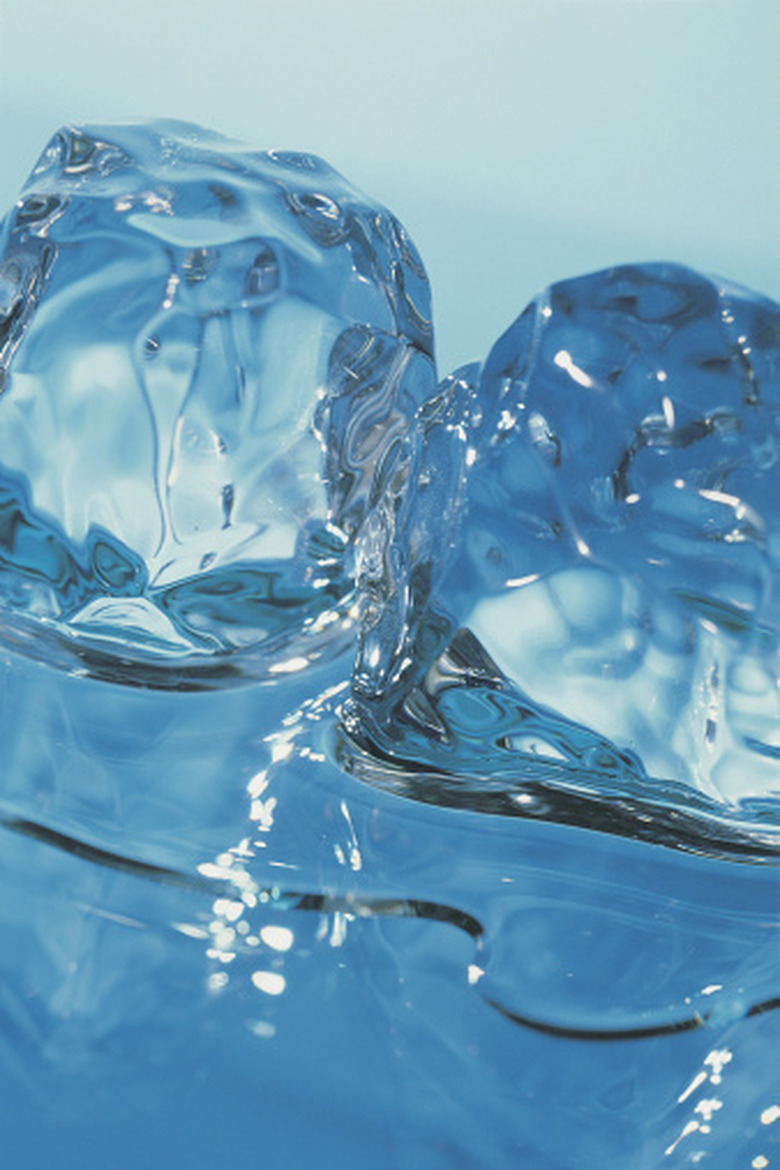Research Paper Ideas On How To Melt Ice The Fastest
Ice and water, and the process by which ice rearranges its molecules and reacts to outside elements in the melting process, is a fascinating subject. Choose a research topic on how to melt ice the fastest, and explore behind-the-scenes, what is required of an ice cube and an outside agent, to accelerate the ice from solid to liquid. What can be done to heighten the process and melt the ice cube the fastest?
Determine Which Substance Melts Ice the Fastest
Determine Which Substance Melts Ice the Fastest
Perform an experiment using four different substances and write a research paper about which of these substances melts ice the fastest. Place four ice cubes on separate plates and use substances such as table salt, sand, sugar and pepper to test which will melt the ice more quickly. Research each of these substances and how they melt ice. Table salt and sugar are soluble substances and dissolve in water while pepper and sand do not dissolve in water. Find out which substance speeds up the melting process. Be sure to understand words like solution, solvent, colligative properties, freezing point depression, phases of matter, phase transitions, evaporation, condensation and sublimation.
Environmental Effects of De-Icing with Chemicals
Environmental Effects of De-Icing with Chemicals
Road workers spread chemicals over icy roads in winter. The de-icing agents lower the freezing point of water. Research how these chemicals melt ice faster than other substances and the environmental impacts of using these chemicals. Two of the common de-icers used are sodium chloride and calcium chloride. The vegetation and water around the roads can be affected by these chemicals. The chemicals can also damage concrete, steel structures and vehicles, and speed up corrosion. Other chemicals are produced that are more expensive but less harmful to the environment, such as calcium magnesium acetate. Another tip that can be researched is the idea of pre-wetting the chemicals to reduce scatter on the roads.
Difference Between Table Salt and Other Road De-Icers
Difference Between Table Salt and Other Road De-Icers
Research the difference between simple table salt and other de-icers, and how the chemical de-icers are treated to melt snow. Table salt does melt ice and snow. The salt grains are tiny and fast-acting. Sodium chloride is the same thing as simple salt, except that the de-icer has been treated. Write a paper about the cost-effectiveness of using table salt or commercial chemical de-icers to melt ice.
Different Surfaces
Different Surfaces
The speed of ice melting might depend on the surface it's sitting on. Choose several different surfaces such as a wooden cutting board, saucer, frying pan and plastic cup. Feel the temperature differences of each surface and the place the ice cubes on each surface. Wait about 10 minutes and look at which ice melted the fastest. Study why this happened and what the temperature differences and energy it takes to melt have to do with the melting speed.
Cite This Article
MLA
Benes, Jessica. "Research Paper Ideas On How To Melt Ice The Fastest" sciencing.com, https://www.sciencing.com/research-ideas-melt-ice-fastest-8529455/. 24 April 2017.
APA
Benes, Jessica. (2017, April 24). Research Paper Ideas On How To Melt Ice The Fastest. sciencing.com. Retrieved from https://www.sciencing.com/research-ideas-melt-ice-fastest-8529455/
Chicago
Benes, Jessica. Research Paper Ideas On How To Melt Ice The Fastest last modified March 24, 2022. https://www.sciencing.com/research-ideas-melt-ice-fastest-8529455/
